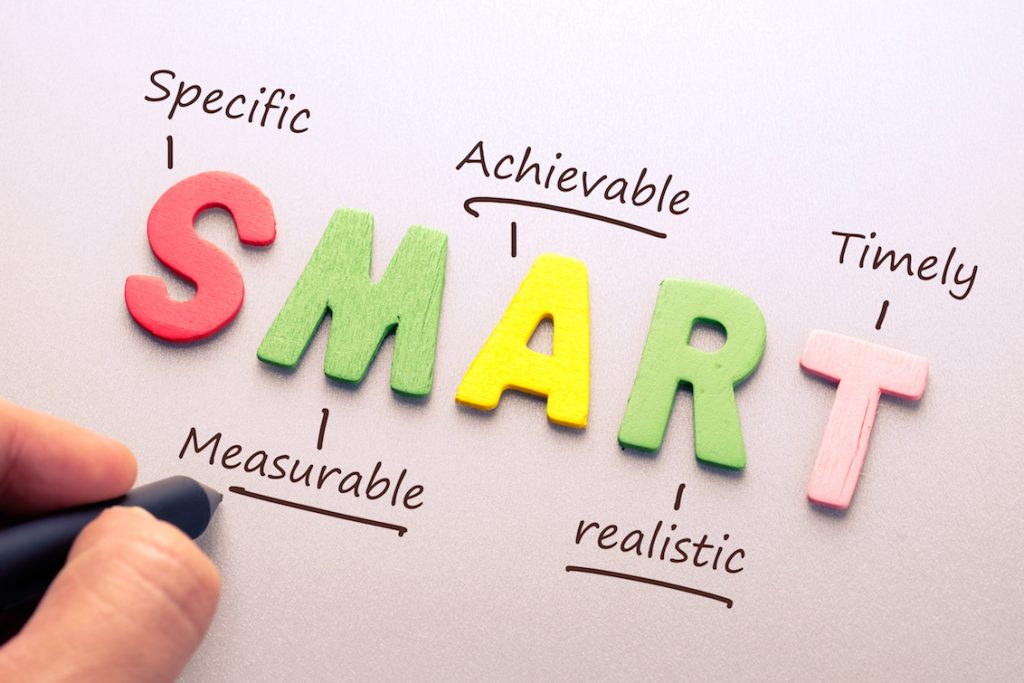Most of us, in this busy modern life, struggle and seek wellness—moving realms into the holistic health and life coaching fields. These are interconnected fields that offer quite distinct approaches to personal growth and well-being but have different purposes.
This article aims to clarify the definitions of holistic health coach and holistic life coaching, delineate the roles and responsibilities of each type of coach, and highlight their key differences.
By the end of this discussion, you will be better prepared to select the right coach to accompany you on your journey toward a healthier and more fulfilling life.
Understanding Holistic Health and Holistic Life Coaching
Grasping the concepts of holistic health and holistic life coaching is crucial for anyone aiming for a balanced and fulfilling lifestyle. Holistic health involves a comprehensive view of well-being, addressing physical, emotional, spiritual, and mental aspects, and acknowledging how these elements are interconnected in contributing to overall wellness.
A holistic life coach plays a pivotal role in supporting clients on their personal development journeys, employing a variety of coaching techniques and strategies to help them reach their goals, enhance their self-awareness, and improve their quality of life.
By incorporating holistic practices into their coaching, these professionals encourage clients to embrace a holistic lifestyle that fosters health transformation and facilitates self-discovery.
Defining Holistic Health

Holistic health represents a comprehensive approach to well-being, recognizing the interconnectedness of physical, emotional, and spiritual health. It emphasizes the importance of maintaining balance in all areas of life. This philosophy understands that optimal wellness goes beyond merely being free of disease; it encompasses a state of complete physical, mental, and social well-being.
To reach this state of balance, individuals are encouraged to explore integrative health practices that include a variety of holistic therapies and self-care strategies tailored to their unique needs. These practices might involve mindfulness meditation, acupuncture, and nutritional therapies, all aimed at nurturing the body, mind, and spirit.
Additionally, developing emotional intelligence and resilience is crucial for navigating life’s challenges. This development fosters a deeper understanding of one’s feelings and enhances interpersonal relationships. By embracing these principles, individuals can cultivate a more meaningful connection with themselves and their environment, ultimately paving the way for lasting wellness.
Further reading: What is The Difference Between a Nutritionist and a Health Coach?
Defining Holistic Life

Holistic life is a transformative process that enables individuals to achieve their goals and enhance their overall quality of life by addressing all aspects of wellness. A holistic life coach employs a variety of coaching techniques, including mindfulness practices and motivation strategies, to support clients on their journeys of personal development and self-improvement.
This approach underscores the importance of a client-centered methodology that honors each individual’s unique experiences and aspirations. Establishing strong relationships with clients is crucial, as these connections foster trust and open communication, allowing clients to feel secure while exploring their vulnerabilities.
Techniques such as active listening, goal-setting frameworks, and visualization exercises not only assist clients in identifying barriers to their progress but also inspire them to embrace change. By integrating these methods, holistic life coaching helps individuals navigate their life paths toward self-actualization, ensuring that the journey itself is as significant as the destination.
The Role of a Holistic Health Coach
A holistic health coach is essential in helping clients achieve their health goals through a comprehensive approach to wellness that considers every aspect of an individual’s life. Their role involves assessing the specific needs of clients, creating tailored health strategies, and offering continuous support to encourage positive behavior changes and enhance overall health.
Responsibilities and Goals

The primary responsibilities of a holistic health coach involve setting clear goals with clients, developing tailored wellness strategies, and building strong relationships based on trust and open communication. These goals typically emphasize enhancing self-care practices, improving both emotional and physical health, and achieving the desired outcomes from coaching.
In their practice, a holistic health coach highlights the importance of integrating various approaches that address not only the physical aspects of well-being but also the mental and emotional dimensions. They advocate for a comprehensive strategy that may include nutrition, mindfulness, and lifestyle adjustments, creating a synergistic effect that effectively supports personal growth.
A crucial part of this process is cultivating a supportive environment where clients feel empowered to share their challenges and successes. By encouraging this open dialogue, the coach can guide individuals toward sustainable habits that foster lasting transformation, ensuring that each step taken aligns with the clients’ unique aspirations and overall vision for their lives.
The Role of a Holistic Life Coach
A holistic life coach acts as a guide for individuals who wish to enhance their personal development through a comprehensive approach that addresses emotional, mental, and physical well-being.
By promoting self-discovery and encouraging shifts in mindset, holistic life coaches enable their clients to take control of their lives and embark on a transformative journey.
Responsibilities and Goals

The responsibilities of a holistic life coach encompass creating a client-centered environment, facilitating personal growth, and utilizing effective coaching techniques to assist clients in defining and achieving their life goals. This dynamic process often includes teaching essential life skills and promoting holistic strategies for self-improvement.
A holistic life coach actively collaborates with individuals to identify their unique strengths and challenges, developing personalized action plans that align with their aspirations. By integrating goal-setting frameworks and motivational techniques, they inspire clients to break larger objectives down into manageable steps, fostering a sense of achievement along the way.
The coach also encourages self-reflection and mindfulness practices, enabling clients to take ownership of their journey. Through a combination of encouragement and accountability, these professionals cultivate resilience, helping clients navigate obstacles with confidence and clarity, which ultimately leads to sustainable personal growth and fulfillment.
Further reading: 10 Simple Steps for Starting A Healthy Lifestyle
Key Differences Between Holistic Health and Holistic Life Coaching
Understanding the key differences between holistic health and holistic life coaching is crucial for anyone looking to pursue a more fulfilling lifestyle. Although both approaches prioritize overall wellness and personal development, they have distinct focuses and methods.
Holistic health places a strong emphasis on integrative practices and physical well-being, while holistic life coaching is more centered on personal growth and making shifts in mindset.
Focus and Approach

The focus and approach of holistic health are centered on achieving a balanced state of well-being that encompasses physical, emotional, and spiritual health, often through a variety of wellness strategies. In contrast, holistic life coaching places a stronger emphasis on the individual’s personal development journey, aiming to transform mindset and lifestyle.
Holistic health practitioners employ a range of techniques, including nutrition consultation, mindfulness, and natural therapies, to help clients cultivate a harmonious existence. This multidimensional approach not only nurtures the body but also enhances emotional resilience and spiritual awareness.
Conversely, holistic life coaching adopts a more personalized methodology, concentrating on goal-setting and enableing clients to navigate obstacles while increasing their self-awareness. By integrating these comprehensive approaches, both holistic health and life coaching work together to promote a deeper understanding of well-being, ultimately guiding individuals toward a more fulfilling and enriched life.
Clientele and Outcomes

The clientele and outcomes associated with holistic health and holistic life coaching can differ significantly. Holistic health tends to attract individuals who are looking to enhance their physical and emotional well-being through integrative health practices. Conversely, holistic life coaching appeals to those who are focused on personal growth, life fulfillment, and achieving specific coaching outcomes.
Clients seeking holistic health often arrive with concerns related to chronic health issues, stress management, or a desire to boost their overall vitality. They typically look for a blend of dietary changes, mindfulness techniques, and natural remedies that promote a more integrated approach to healing.
On the other hand, individuals pursuing holistic life coaching may be navigating transitional phases in their lives and require support in setting and achieving personal goals such as career advancement, improving relationships, or enhancing emotional intelligence.
Coaches in this domain utilize a variety of strategies, including active listening, powerful questioning, and visualization exercises, to help clients gain a clearer sense of purpose and fulfillment in their lives.
Choosing the Right Coach for You
Selecting the appropriate coach for your personal development journey plays a vital role in reaching your wellness goals and improving your overall quality of life.
Whether you are looking for a holistic life coach or a holistic health coach, it is essential to evaluate your specific needs and objectives to ensure compatibility and achieve effective coaching results.
Assessing Your Needs and Goals

Assessing your needs and goals is a crucial first step in selecting the right holistic coach for your journey toward personal growth and well-being. By clearly defining your objectives, you can determine which type of coach—whether a holistic life coach or a holistic health coach—best aligns with your aspirations and lifestyle.
Engaging in self-reflection allows individuals to gain a deeper understanding of their strengths, weaknesses, and areas for improvement, offering valuable insights into what they truly desire. Techniques such as journaling, meditation, or mindfulness exercises can support this process, creating an environment for honest evaluation of personal values and priorities.
Once you have a clearer picture of your needs, setting SMART (Specific, Measurable, Achievable, Relevant, Time-bound) goals becomes essential. This structured approach not only fosters motivation but also ensures accountability. By thoroughly assessing these needs and goals, you can select the most suitable coaching style—whether it focuses on emotional healing, health optimization, or overall life balance—thereby enhancing the effectiveness of your coaching experience.
Considering Qualifications and Specializations
When considering a coach, it is important to evaluate their qualifications and specializations to ensure they possess the necessary skills and knowledge to effectively support your wellness journey. Whether you are selecting a holistic life coach or a holistic health coach, seeking certified professionals can significantly enhance the effectiveness of the coaching process and improve client outcomes.
A well-structured coaching certification indicates adherence to established standards and demonstrates a commitment to ongoing professional development. Coaches who specialize in areas such as mindfulness, nutrition, or emotional intelligence can tailor their approach to meet the unique needs of each client. This targeted expertise is invaluable, creating a more personalized experience that addresses specific concerns.
Certifications typically include practical training and assessments, equipping coaches with the tools they need to facilitate transformative changes. By prioritizing these qualifications, clients can feel assured in their choice, confident that they have a knowledgeable partner dedicated to guiding them toward their wellness goals.
Frequently Asked Questions
What is the difference between a Holistic Health and Holistic Life Coach?
A Holistic Health Coach focuses on improving an individual's physical health through nutrition, exercise, and lifestyle changes, while a Holistic Life Coach focuses on improving an individual's overall well-being and achieving balance in all areas of life.
Do Holistic Health and Holistic Life Coaches have different approaches?
Yes, Holistic Health Coaches typically use a more scientific approach, while Holistic Life Coaches incorporate a more holistic and spiritual approach in their coaching methods.
Are there any similarities between Holistic Health and Holistic Life Coaches?
Both types of coaches believe in treating the whole person, rather than just focusing on one aspect of their life. They both also take into consideration an individual's physical, mental, and emotional health.
Can a Holistic Health Coach also be a Holistic Life Coach?
Yes, it is possible for a Holistic Health Coach to also incorporate elements of Holistic Life Coaching in their practice. However, a Holistic Life Coach may not necessarily have the qualifications or knowledge to provide specific guidance on physical health.
Is one type of coach better than the other?
It ultimately depends on an individual's specific needs and goals. If someone is looking to improve their physical health, they may benefit more from working with a Holistic Health Coach. However, if someone is seeking overall balance and well-being, a Holistic Life Coach may be a better fit.



